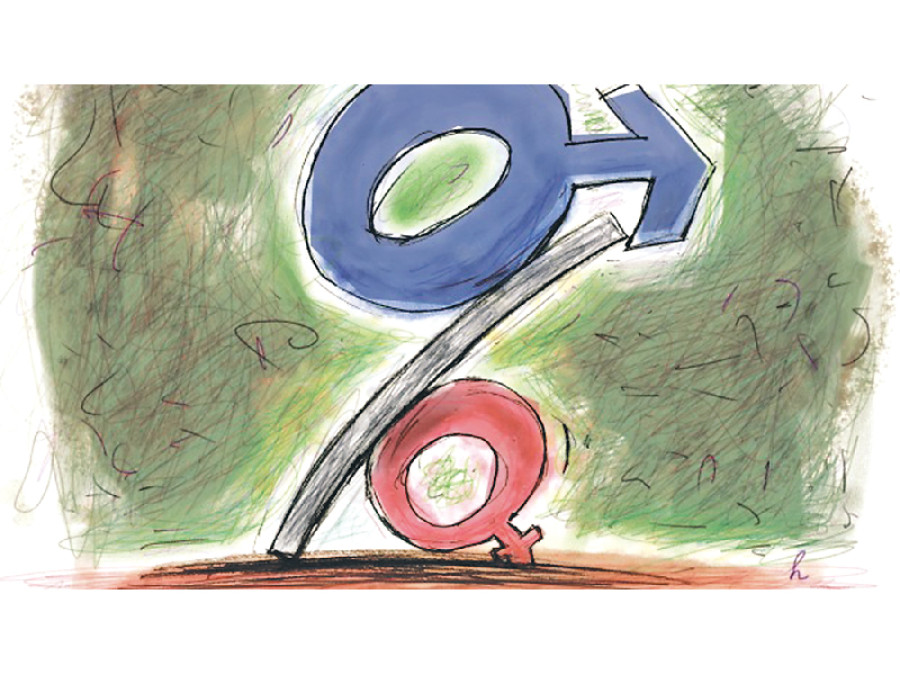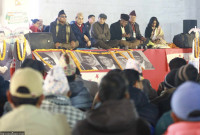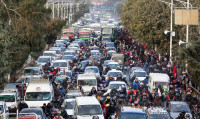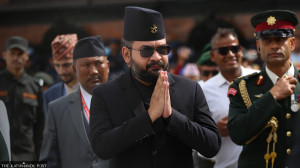Opinion
Pride and prejudice
Is treating women as second-class citizens the only way to avert the possibility of a geopolitical crisis?
Sophia K Tamot
The world’s youngest federal democratic republic with a brand new constitution now has a brand new prime minister, despite the disappointment of a few. For the past seven years, it was the making of the constitution that had dominated the country’s agenda. Now, on the one hand, the new constitution has been hailed as the most progressive statute in the region while on the other, it has been the cause of an over two-month-long crisis that has already killed over 40 people. The Constitution of Nepal, 2072 also apparently prompted India to impose an ‘unofficial’ fuel embargo on Nepal. However, in less than three weeks since the promulgation of the statute and despite being voted by over 90 percent of Constituent Assembly (CA) members, amendments are already being sought to address the key demands of the people of the Madhes.
Whether addressing the demands of the Madhesis is a solution or if it is akin to opening a Pandora’s Box may be a different debate. Still, every citizen needs to be treated with respect, have equal access to opportunities and not be discriminated against on the basis of caste, creed, colour, gender, economic status or family background. But if one has to resort to violent protests that maim and claim hundreds of lives and disrupt the country’s already frail economy just so that their concerns are taken seriously, what message does it send to those who feel their voices ignored, underrepresented or excluded?
Southern concerns
Nepal’s economic, political, geographical, social and cultural vulnerabilities have been exposed by the fuel crisis like never before. The fear that the big bully in the south will exert undue influence in Nepal’s politics, its Parliament and its people has never been greater. Let alone the political dependency and manoeuvring that we have been suffering since the start of the Maoist insurgency, one cannot ignore how Nepal’s dependency on India has evolved over the years. With the increasing outflow of Nepalis as migrant workers and growing remittances, import from India has increased many folds—for anything and everything including 100 percent of petroleum products, demand for which is growing by 10 percent each year. The dependency is such that we are at India’s mercy for fuel, the product which runs our households, schools, businesses and state administration.
It is exactly because of all this, nationalists claim, that certain provisions in new constitution seek to avert direct influence and possible infiltration from the southern neighbour so that tomorrow’s Nepal will not be a submissive Bhutan or an annexed Sikkim. Despite international recognition of Nepal’s sovereignty, some experts go as far as to say that the recent annexation of Ukraine’s Crimea by Russia is a vivid example of what could happen if Nepal’s worst fears come true. Therefore, it seems that the new constitution has been drafted to first and foremost protect Nepal’s sovereignty even if that means certain compromises, for example, on equality.
Excluding women
As a woman, I can say with certitude that our new constitution is a leap forward for women in terms of prescribing 33 percent representation in all state agencies including electoral constituencies. But it does not recognise women as equal citizens.
So it is clearly and exclusively discriminatory.
The age old chauvinistic social concept that a daughter once married off is someone else’s property while a son’s wife is the dutiful and doting daughter-in-law seems to have been disturbingly applied in the case of provisions relating to citizenship via descent vs. citizenship via naturalisation.
A child of a Nepali man, irrespective of who he marries, is unquestionably eligible for citizenship through descent. But a Nepali woman’s child will be entitled to similar rights only if she marries a Nepali. A host of conditions have been inserted to confer nationality via naturalisation to the child of a Nepali woman if she marries a foreigner. If the foreigner father decides not to acquire Nepali citizenship by the time of the child’s birth, they will have no right to citizenship at all and in effect, become stateless.
Additionally, children born to Nepali mothers outside Nepal, whose fathers cannot be identified, have no right to citizenship either. Hundreds of thousands of Nepali women are trafficked abroad every year. What happens to their children?
Second-class citizens
The psychosomatic terror that future generations born of such foreign fathers will pledge allegiance to the other side for want of control over Nepal’s water resources is deeply ingrained in our psyche. There is fear that when the time comes for future constitutional amendments, a referendum perhaps, annexation or a secession of Nepal will all be but in name. Yet, instead of inspiring nationalism that promotes unity and harmony and adopting policy instruments to strengthen existing weaknesses, remove loopholes, deter and penalise aberrant activities, our archaic leaders have found easy victims to snare.
I am sure that Nepali leaders realise that by enforcing such provisions for women, they are condemning half of country’s population to persistent discrimination. But do they also realise that by circumventing what they think they are averting, they might actually be encouraging the reverse? Is treating women as second-class citizens the only way to avert the possibility of a geo-political crisis? No, it is not. Fair and strengthened governance is the answer.
There must be more thoughtful considerations on how Nepal can ensure her national sovereignty without discriminating against its people. And leaders must find ways to check, deter and remove potential loopholes. If over 100,000 foreign nationals did acquire citizenship ollowing political changes in 2006 then there should have been a probe into how that was allowed to happen? Why have no corrupt officials been identified till date? The point is, getting to the bottom of all this requires a comprehensive investigation and analysis that is driven by objectivity, not prejudice. Because at the end of the day, the fundamental question remains: what would you do and how far would you go for a country that treats you and your children as second-class citizens?




 17.12°C Kathmandu
17.12°C Kathmandu










